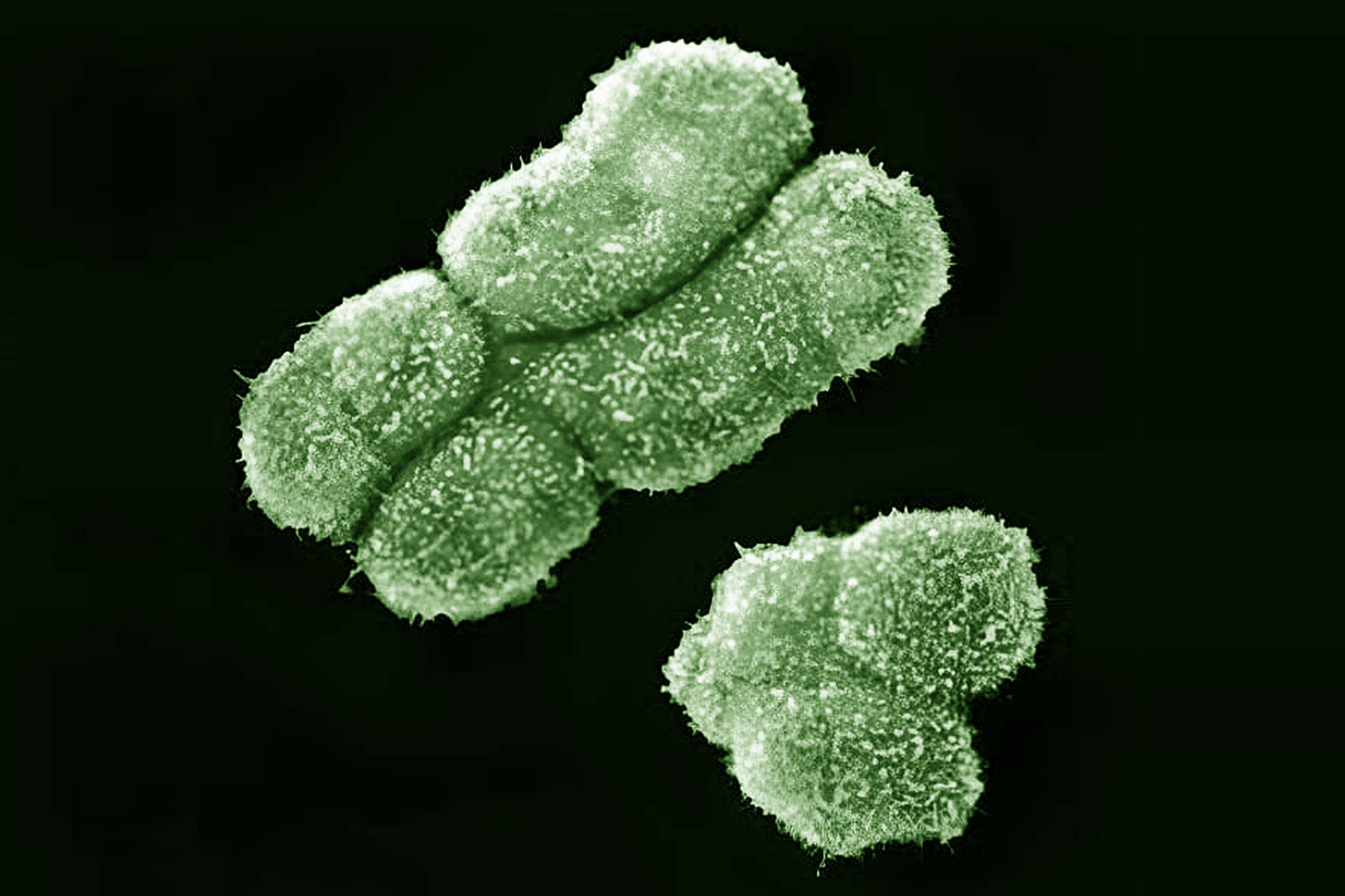What is DSD? Rare condition explained after Imane Khelif Olympic boxing row over XY chromosome
‘Is sex something that you can see depending on which hormone, estrogen, or testosterone you preferentially produce? No, it’s not. Sex is much more complicated,’ expert tells Maya Oppenheim


Your support helps us to tell the story
From reproductive rights to climate change to Big Tech, The Independent is on the ground when the story is developing. Whether it's investigating the financials of Elon Musk's pro-Trump PAC or producing our latest documentary, 'The A Word', which shines a light on the American women fighting for reproductive rights, we know how important it is to parse out the facts from the messaging.
At such a critical moment in US history, we need reporters on the ground. Your donation allows us to keep sending journalists to speak to both sides of the story.
The Independent is trusted by Americans across the entire political spectrum. And unlike many other quality news outlets, we choose not to lock Americans out of our reporting and analysis with paywalls. We believe quality journalism should be available to everyone, paid for by those who can afford it.
Your support makes all the difference.Earlier this year, the often overlooked issue of differences in sex development came to the fore after two women boxers were allowed to compete in the Olympics after previously failing a gender eligibility test.
Last year, Algeria’s Imane Khelif was disqualified just hours before her gold-medal bout at the women’s World Championships in New Delhi after not meeting the International Boxing Association’s (IBA) eligibility criteria, which blocks athletes with male XY chromosomes competing in women’s events.
Meanwhile, Taiwan’s double-world champion Lin Yu-ting lost her bronze medal at the same competition after she also failed to meet the criteria.
On Tuesday, it emerged Khelif is set to turn professional after winning Olympic gold in Paris.
The International Olympic Committee (IOC) previously defended its decision to allow the two boxers to compete in the Paris 2024 Olympics. It comes after the IBA was stripped of its recognition by the IOC last year over governance and finance issues, with the Olympic body running the boxing competition in Paris itself, and permitting both women to participate.

The committee said: “The current aggression against these two athletes is based entirely on this arbitrary decision, which was taken without any proper procedure, especially considering that these athletes had been competing in top-level competition for many years.
“The IOC is saddened by the abuse that the two athletes are currently receiving. Every person has the right to practice sport without discrimination.”
This raises the question of what differences in sex development are – with The Independent speaking to an academic who specialises in this area to find out more.
What are the differences in sex development?
The term “differences in sex development”, or DSD, is used to refer to a wide range of different scenarios, with the NHS describing it as a “group of rare conditions involving genes, hormones and reproductive organs, including genitals” which “means a person’s sex development is different to most other people’s”.
Individuals can either have sex chromosomes generally linked with being female (XX chromosomes) or usually associated with being a man (XY chromosomes), yet have reproductive organs and genitals that may look different.
The NHS states that “a person may have a womb and may also have testicles inside their body. Sometimes the testicles might not work properly”.
It adds: “Some people with a very rare type of DSD have both ovarian and testicular tissue (sometimes one ovary and one testis). Their genitals may appear female or male or could look different from either.”
A person may have a womb and may also have testicles inside their body. Sometimes the testicles might not work properly
Claus Højbjerg Gravholt, a professor of genetic endocrinology, said it is impossible to state everyone with a Y chromosome is a male and everyone with an X chromosome is a female.
Professor Højbjerg Gravholt, who is based at Aarhus University in Denmark and works with patients who have differences in sex development, added: “If I showed you pictures of my patients without any clothes on, you would say, well, these are females that I'm looking at.
“But, in fact, they actually have a Y chromosome. And so it’s really coming back to, what is sex? Is sex something you can see out of the chromosomes? No, it’s not. Is sex something that you can see depending on which hormone, estrogen, or testosterone you preferentially produce? No, it’s not. Sex is much more complicated.”
When do differences in sex development emerge?
People generally find out they have a difference in sex development around when they are born or once they become a teenager.
But Professor Højbjerg Gravholt explained the last patient he had diagnosed was a woman in her early thirties who had sought help as she could not get pregnant.
“She had a normal vagina, a normal external female appearance, but did not have a uterus, and she also produced a lot of testosterone from her two testes, which were placed at the same place as the ovaries,” he added.
Her experience demonstrates how complicated differences in sex development are, he said, explaining the patient was “devastated” when he told her that she could not get pregnant due to not having a uterus.
Does a woman with an XY chromosome have periods and can she have children?
Professor Højbjerg Gravholt explains around half of the patients he sees do not have a uterus so they can’t carry a child through a pregnancy – while the other half have a uterus, but do not produce eggs.
These women would not have periods unless they are given sex hormones, he explained, adding that he has never encountered or heard of a woman with an XY chromosome who can have children.



Join our commenting forum
Join thought-provoking conversations, follow other Independent readers and see their replies
Comments